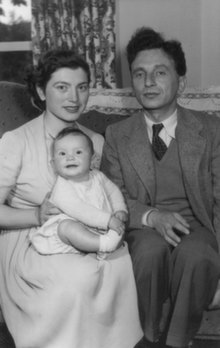John Subak Sharpe – Life Before The War
John Herbert Subak-Sharpe (1924- ) was Professor of Virology and Honorary Director of the Medical Research Council Virology Unit from 1968 to 1994. Born in Vienna, Subak-Sharp was brought to Britain by the Kindertransport mission in 1939 and was a farm pupil from 1939 to 1944, before serving in the Parachute Regiment. He graduated with… Continue Reading John Subak Sharpe – Life Before The War

